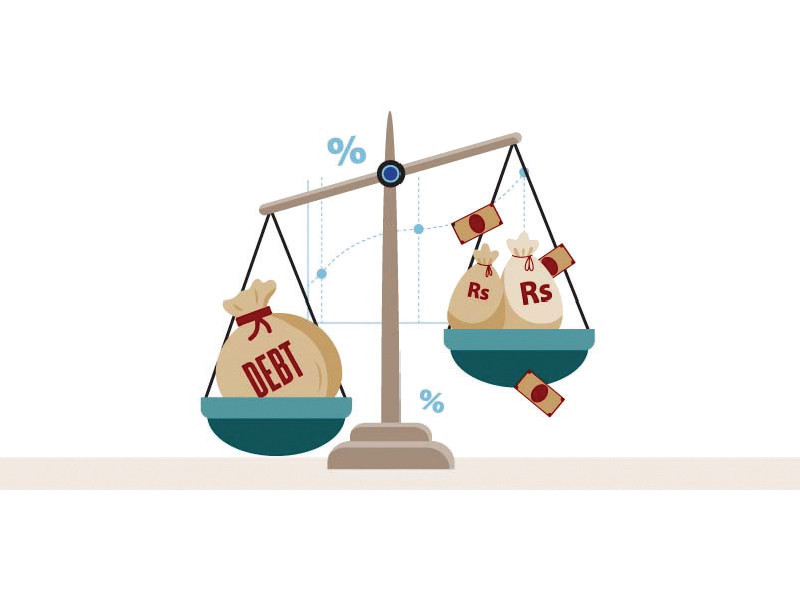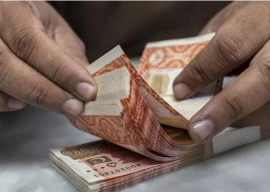
The government has continued to re-profile domestic debt by retiring high-cost, short-term loans to commercial banks and raising new, lower-interest, long-term debt. This approach reduces the heavy burden of interest payments to financial institutions.
At the latest auctions held on Wednesday, the Ministry of Finance repaid Rs200 billion in six- and 12-month Treasury bills (T-bills) maturing on December 12, 2024, which carried interest rates of 15.09% and 15.29%, respectively, according to data from the State Bank of Pakistan (SBP) reported by Arif Habib Limited (AHL). Notably, banks did not offer bids for T-bills maturing on December 26, 2024.
In parallel, the ministry raised Rs820 billion in new debt through the issuance of three- to 12-month T-bills at reduced interest rates ranging from 13.09% to 13.89%, a significant decrease from recent highs of around 23%. The amount raised far exceeded the pre-auction target of Rs400 billion, as banks offered a total of Rs2.19 trillion, about 5.5 times the target, allowing the government to secure favourable terms. This raised amount has been allocated to retire Rs893 billion in T-bills maturing on October 31, effectively avoiding an increase in short-term domestic debt.
Speaking to The Express Tribune, AHL Economist Sana Tawfik said the availability of excess financing enabled the government to re-profile its domestic debt. The move follows a major transfer of Rs2.7 trillion from the central bank's record Rs4 trillion profit in FY24 to the government.
Additionally, a sharp drop in inflation, down to 6.9% in September from a peak of 38% in May, played a pivotal role in bringing down the cut-off yield on T-bills to around 13%, she noted.
Tawfik highlighted that the government is shifting away from short-term T-bills and focusing on longer-term Pakistan Investment Bonds (PIBs) with tenures of two to ten years, an effort to stabilise the debt profile and reduce refinancing risks.
This debt reduction initiative has also allowed commercial banks to reduce their borrowing from the SBP by Rs2.7 trillion in recent months, bringing the total down to Rs9.3 trillion from a previous high of around Rs12 trillion. This spike in bank borrowing was a result of the government's demand for financing since, under current rules, it cannot borrow directly from the central bank, as explained by Topline Research.
Tawfik noted that this buyback exercise marks the first time in fiscal year 2024-25 that the government has engaged in such an initiative, potentially establishing it as a regular strategy to reduce interest payments.
As banks sell off short-term T-bills and shift towards PIBs, they are expected to stabilise their earnings over time rather than experiencing brief surges through T-bills.
Tawfik further projected a fourth consecutive policy rate cut by the SBP at its meeting on November 4. She cited the 140-basis-point decline in T-bill yields to about 13-14% from previous levels of over 15% and 23% a few months ago as strong indicators. She expects a cut of up to 200 basis points, bringing the key interest rate to approximately 15.5%.











1730379446-0/WhatsApp-Image-2024-10-31-at-17-56-13-(1)1730379446-0-270x192.webp)






COMMENTS
Comments are moderated and generally will be posted if they are on-topic and not abusive.
For more information, please see our Comments FAQ